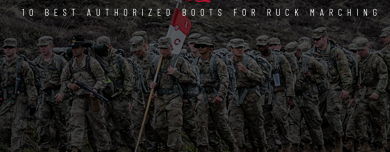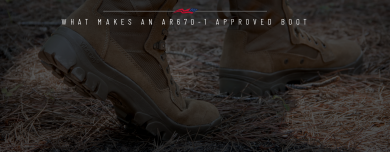
There’s a long, proud history of something in the military: insults. And recently, when the Marine Corps Times came out with the headline of Don’t Call Me ‘POG’: The Push to End the Corps’ Most Damaging Divide, the reactions were unsurprisingly mixed: laughter from the infantry and righteous offense from the POGs…or, in politically-correct speak, the non-infantry. So is it true; is there a history of damaging and offensive name-calling in the military? And, perhaps more importantly, should it stop?
The Term “POG”
First let’s humor the history-buff in me and take a quick look at what’s actually behind the term “POG.” It first appeared after World War I, and by the time World War II came around, it was seeing frequent use in the United States Marine Corps and Navy. By the time Vietnam started, the Army had picked it up as well. It didn’t start out as “POG,” though, it was “pogue” and with time it became a retronym and shortened to POG. Today it’s the rare soldier who realizes POG started out as pogue. POG now stands for Person Other than Grunt or Posted On Garrison. And, guess what? It isn’t the only term the infantry has for non-infantry. There’s also Fobbit, which refers to a soldier who never leaves the FOB, and REMF, which I’ll explain the “RE” of – it stands for rear echelon. List goes on.
So, is there something behind the many POG comments the Grunts make? Look at it from the infantry perspective for a minute.
- Grunts regularly go into direct combat, because that’s their job. Although some non-infantry do end up in some sort of combat at some time, it is not – not – their MOS. It isn’t what they do on a constant basis, and it is exactly what infantry soldiers signed up for. Because of that, infantry training is more physically challenging – and stays that way – and standards for many things tend to be higher.
- Consider the brotherhood of the infantry. Combat – and the injury and death that comes with it – is a reality for Grunts, and that makes the bonds within the infantry all that much stronger. It’s a unique bond and should not be discounted.
- Grunts have to keep up their training, no matter what. Remember Sergeant Time Training? The Army instituted it as a way to extend combat training to non-infantry soldiers. A platoon sergeant once made his thoughts on STT clear, saying “We are infantry; every day is sergeant’s time.”
- Maimings. Death. These are the things Grunts face every time they head out on a mission. This could go on, but let’s leave it here.
Two quick facts about the non-infantry world: living conditions on base are often better – sometimes much, much better – and promotions happen more quickly and are easier to attain.
Really, the divide between infantry and non-infantry starts back in Basic. Everyone is told their MOS is the most important, that nobody gets paid without the finance guys, nobody gets chow without cooks, and nobody gets much-needed gear without supply. And for the infantry, they’re told they’re the end-all, be-all because they put their lives on the line on a regular basis. Of course, that doesn’t mean the infantry doesn’t need the rest, and most Grunts know that. But here’s the thing.
More than one Grunt has gone to chow and listened to a non-infantry member describe their involvement in a firefight when they weren’t actually present. That’s not to say they never are, just that big-fish stories seem to happen. And more than one Grunt has been treated poorly – for no reason whatsoever – when, say, going for supplies. One Grunt in Khost Province on FOB Salerno went for an important part for his machine gun mount. He thought it was okay to go in because the supply sergeant had just told him the week before that extra gear in a particular box wasn’t accountable and he could grab what he needed. But when the Grunt went in – 10 minutes before heading out on the mission – he was surprised to be kicked out of the supply hut by said supply sergeant. Supply was doing their morning PT, and because of that he told the Grunt to leave. Empty-handed. Would that piece have made him more combat-effective? Yes. So why did he get thrown out?
Rivalry Goes Both Ways
Yes, it’s a rivalry that often goes too far. But, wait, it’s a rivalry – it’s not one-sided. Non-infantry often talks down about “dumb Grunts” and has their own litany of insults. And, ironically, there’s a fair amount of insult-exchanging that goes on in the non-infantry ranks regarding who is more or less vital to the success of the military. Saying it’s just the infantry slinging mud isn’t accurate; they just happen to have the most catchy insult.
It’s absolutely true that every cog in the machine is needed for our nation to have a fully-functional military. There’s no denying that, and most Grunts know that, too. And you’ll find that when a non-infantry member proves their mettle in combat, the “POG” label slips away, or just becomes more term of endearment than insult. Every MOS has value, but they are not all the same. And, guess what, it isn’t limited to the military.
Anyone who has ever worked in law enforcement or emergency services – even Search and Rescue – knows this is true. The camaraderie or brotherhood or whatever you want to call it is real, and the “us versus them” mentality is normal. Yes, I said normal. When you risk your life, especially on a daily basis, to help others, it isn’t exactly a surprise when you’re proud of what you do. You should be. Not everyone is cut out for it, or able to do it for one reason or another, and you do. That’s something to take pride in.
When it goes too far is when it becomes cruel or hateful. And it does sometimes go too far, and that’s been helped along a bit by the anonymity of social media. When it’s no longer good-natured joking or even typical male insults – because, come on, that’s part of the military culture. Part of the male culture, actually. Let’s not pretend it isn’t. For example, did your DS insult you during Basic? You bet. And let’s clarify this further by saying personal interactions count for a large portion of that, because in situations like the Grunt who was denied a piece of equipment due to Supply’s PT time, wouldn’t you be mad? What that doesn’t mean is that you need to apply that level of anger or frustration to every single Supply person you ever meet or interact with, although such a reaction is human. Each individual is responsible for their own actions, and that’s a two-way street. Cultivating a good relationship with various non-infantry members is a smart move for Grunts, if for no other reason than it’ll make getting things done on base easier.
Insults are a part of how guys interact, and a big part of the military. Spend five minutes around a group of Grunts or SF operators and watch the barbs fly. If someone’s going to get their feelings hurt by the rather constant barrage of trash-talk, they’re going to have a real problem serving in the infantry or SF. Yes, there is always some guy out there getting his fragile feelings damaged, but it’s more the exception than the rule. The guys who make it are the ones who can both take a hit and return it, with added heat.
This is not to excuse every “POG” comment ever made, because I can just hear the keyboards clacking even miles away, but to say it’s a part of military life. And as soon as you start placing restrictions on these things, you start to break the back of the military. Each and every time new strictures are put in place – like the tattoo regulations, and I realize there are some who believe they make good sense – they put unnecessary pressure on service members and also lower the number of civilians who will be willing, or able, to enlist. And when it comes to Grunts, added pressure is not helpful in the least. Risking your life for your job is enough pressure on its own, isn’t it?
Advice to Non-Infantry Member
A word of advice to the non-infantry members getting worked up over being called POGs. Some of you take it in stride, and some of you even adopt it and make it your own, and for that, good for you. Those who go straight to their CO and complain of being called a POG are doing something that should have gone out of style in grade school: tattling. And not for something major, either. For a word. A retronym that’s been around for generations. One your military fathers and father’s fathers used. Your CO’s time, and the military’s time, would be far better spent on planning tactics and deciding how best to defend our nation’s borders, not writing up new regulations about what’s a 70-year-old term.
Some time back a Grunt affectionately nicknamed me Gruntette, and although it made me smile – still does to this day – I know I’m a POG. And I’m okay with that. Everyone signed up for their particular MOS, and even though recruiters accurately state there are only a certain number of infantry positions open each month and they often need to convince someone to sign up for a different MOS, well, you still signed up for it, didn’t you. No one held a gun to your head. Anyone who risks their life in combat deserves respect, whether infantry or not. And anyone who enlists in the military and serves this country deserves respect, regardless of MOS. The reason Grunts have something extra is simple, it’s because they walked through that door knowing they’d be risking their lives as a way of life. So while every job is important, it seems pretty safe to say that risking death and dismemberment gives a soldier or a Marine and extra edge. A little trash-talking shouldn’t make headlines, and shouldn’t cause such a fuss. At the end of the day, respect is earned, no matter who you are.
But hey, what would I know. I’m just a POG.
Disclaimer: The content in this article is the opinion of the writer and does not necessarily reflect the policies or opinions of US Patriot Tactical.





